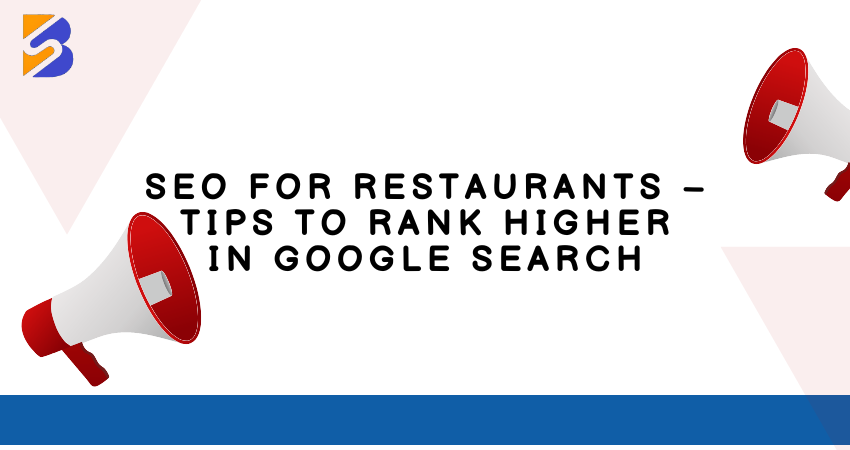As a restaurant owner, you know that attracting new customers is key to the success of your business. But with so much competition out there, it can be tough to stand out from the crowd and get people through the door. That’s where search engine optimization (SEO) comes in. By optimizing your online presence, you can improve your visibility on search engines like Google and increase the chances that potential customers will find your restaurant when they’re searching for places to eat. Here are some tips to help you rank higher in Google search and boost your restaurant’s SEO:
1. Optimize Your Website:
The first step in improving your restaurant’s SEO is making sure your website is optimized for search engines. This includes ensuring that your site loads quickly, has clear and concise content, and uses relevant keywords throughout. You should also include location-based keywords to improve your local SEO for restaurants. For example, if you own a pizza place in New York City, including “NYC” or “Manhattan” in your keyword phrases will help potential customers find you when they search for pizza places near them.
2. Claim and Optimize Your Google My Business Listing
One of the most important things you can do for your restaurant’s local SEO is to claim and verify your Google My Business listing. This free tool allows you to manage how your restaurant appears on Google Maps and in the Local Pack – the list of nearby businesses that appears at the top of many search results pages. Make sure to include accurate and up-to-date information about your restaurant, such as its name, address, phone number, hours, and category. You should also add photos and encourage customers to leave reviews.
3. Use Relevant Keywords On Your Website
In order for Google to understand what your restaurant is all about, it’s important to use relevant keywords throughout your website. These could include terms like “Italian cuisine,” “seafood restaurant,” or “vegan options.” Be sure to include these keywords in strategic locations, such as your homepage, menu page, and location page. However, avoid keyword stuffing, which can actually hurt your ranking rather than help it. Instead, focus on creating high-quality content that naturally incorporates these keywords.
4. Build High-Quality Backlinks
Backlinks are links from other websites that point back to yours. They act as votes of confidence in the eyes of Google and can significantly impact your ranking. One way to build backlinks is by reaching out to food blogs, news sites, and review platforms and asking them to link to your restaurant’s website. Another option is to create valuable content that others want to share, such as infographics, videos, or how-to guides. The more high-quality backlinks you have pointing to your site, the better your chances of ranking higher in Google search.
5. Optimize Your Menu For SEO
Your menu is one of the most visited pages on your restaurant’s website, making it an ideal place to optimize for SEO. Start by including relevant keywords in your dish names and descriptions. For example, instead of just calling a dish “pasta,” try using a more descriptive term like “creamy mushroom pasta” or “spicy shrimp scampi.” You should also consider adding structured data markup to your menu, which can help Google understand the contents of each dish and display them in a more user-friendly format.
6. Use Social Media
Social media platforms like Facebook, Instagram, and Twitter offer an opportunity to connect with potential customers and build brand awareness. Share mouthwatering images of your food, behind-the-scenes looks at your kitchen, and special promotions to keep followers engaged. Make sure to use relevant hashtags and tag nearby businesses to expand your reach.
7. Create A Blog And Publish Regularly
Creating a blog and publishing regular posts is a great way to establish yourself as an authority in your industry and drive traffic to your website. Plus, it gives you another opportunity to incorporate relevant keywords and build backlinks. Some ideas for blog posts might include recipes, cooking tips, behind-the-scenes glimpses of your kitchen, or interviews with staff members. Just make sure to keep your audience in mind and provide value with every post.
8. Stay Up-To-Date With Industry Trends
Finally, stay informed about industry trends and changes in SEO best practices. Keep an eye on updates from major search engines like Google and adjust your strategies accordingly. Attend conferences, read industry publications, and follow thought leaders in the field to ensure you’re always ahead of the curve.
By following these tips, you can improve your restaurant’s SEO and increase your chances of ranking higher in Google search. Remember that SEO is not a one-time task but an ongoing process that requires consistent effort and attention. With patience and persistence, however, you can achieve sustained growth and success for your business.
If you want to take your restaurant’s SEO to the next level, consider investing in professional SEO services from a reputable agency. A skilled team of experts can provide personalized strategies tailored to your unique needs and goals. Look for an agency like BrahmaSoft, which specializes in restaurant SEO services and has experience working with similar businesses.



